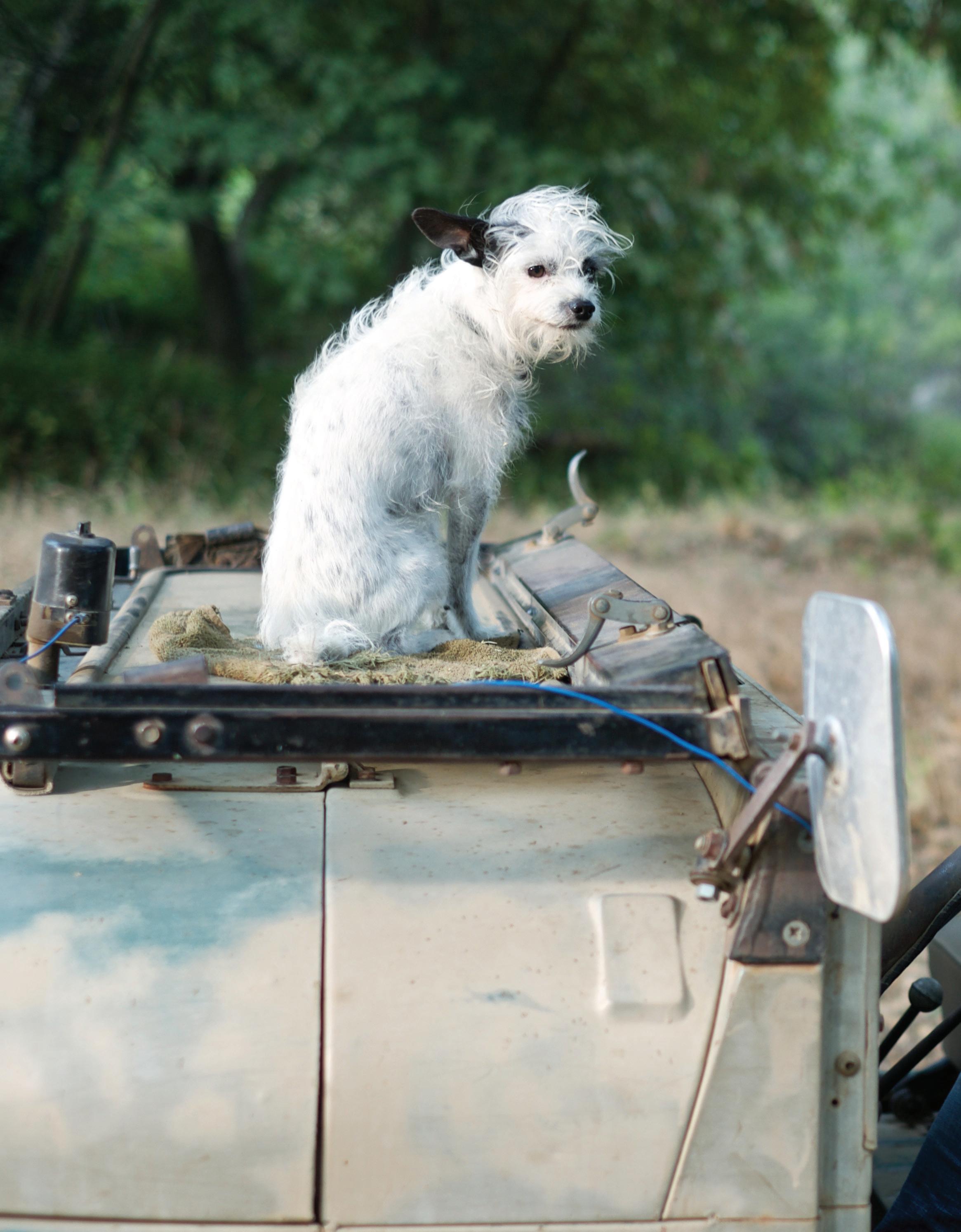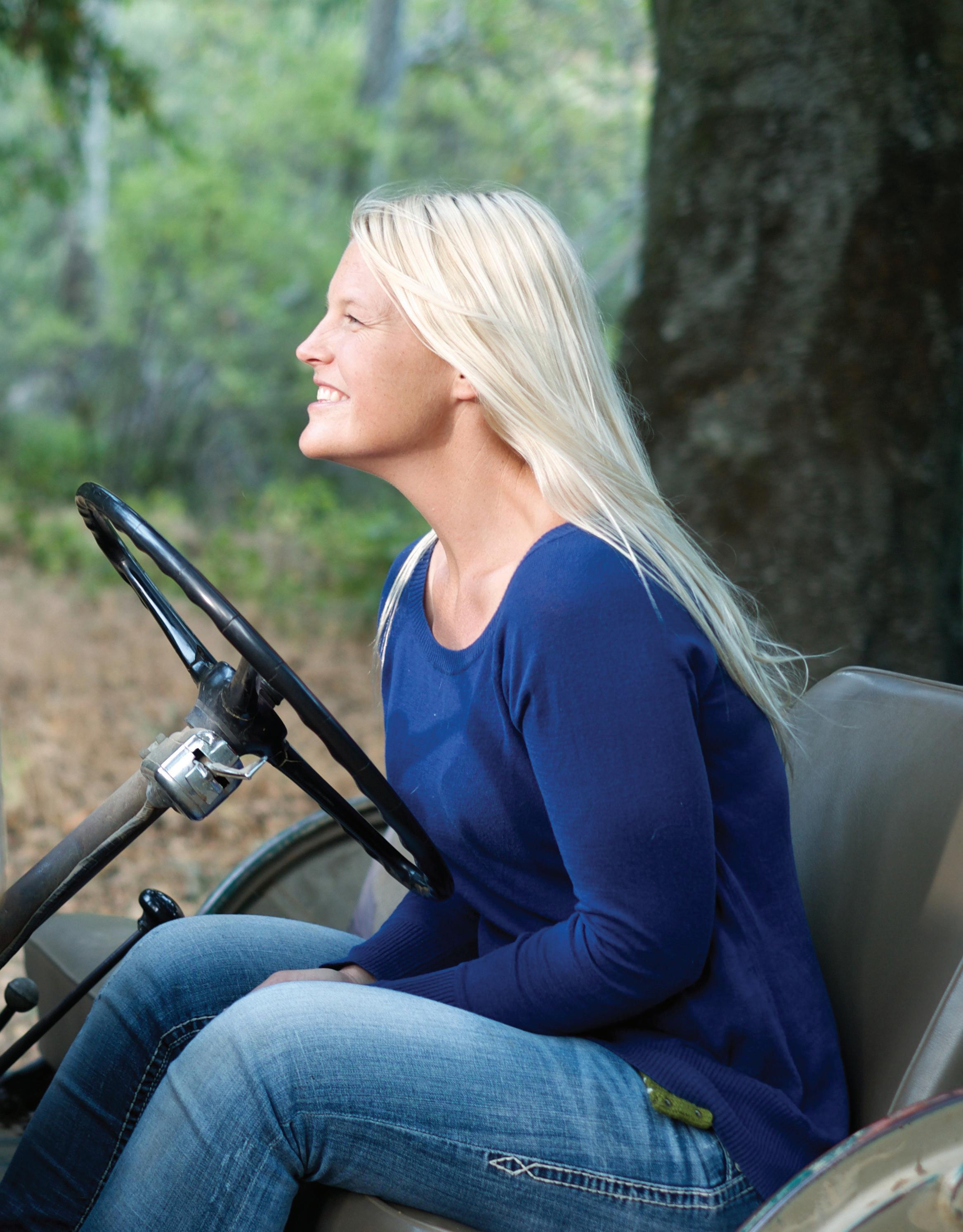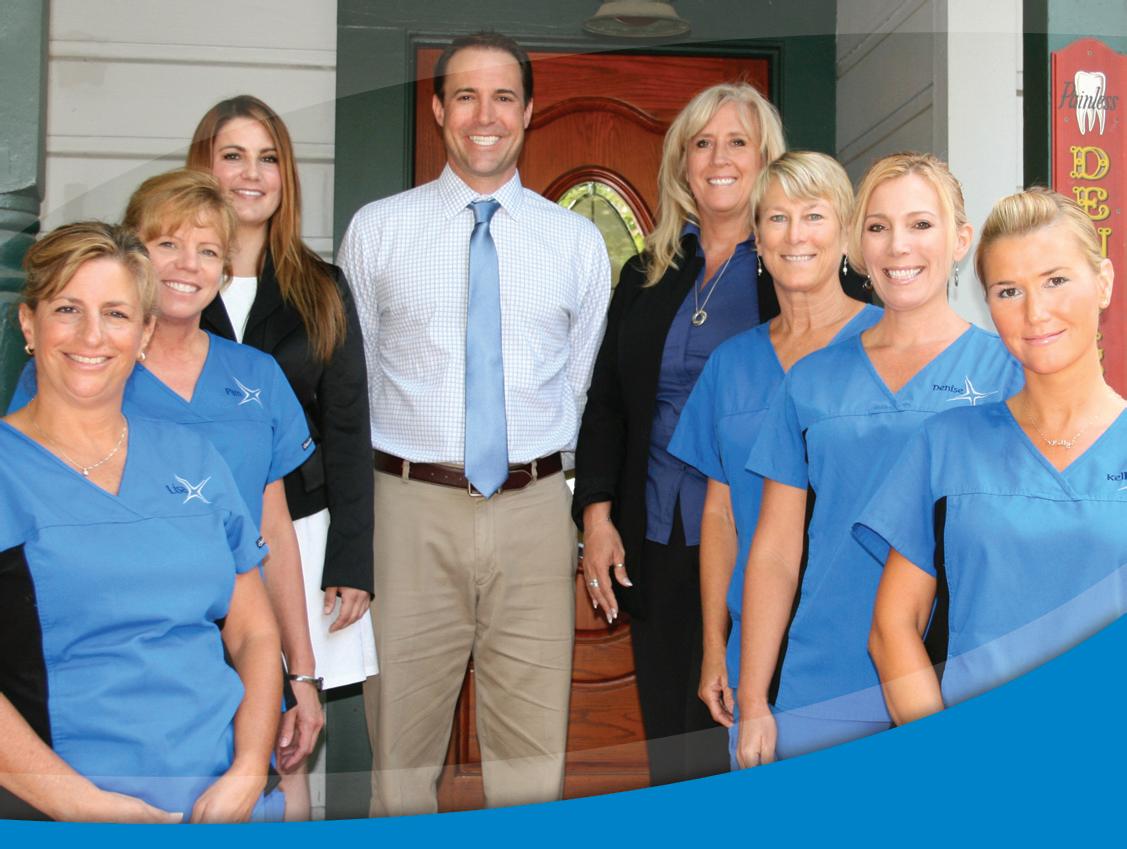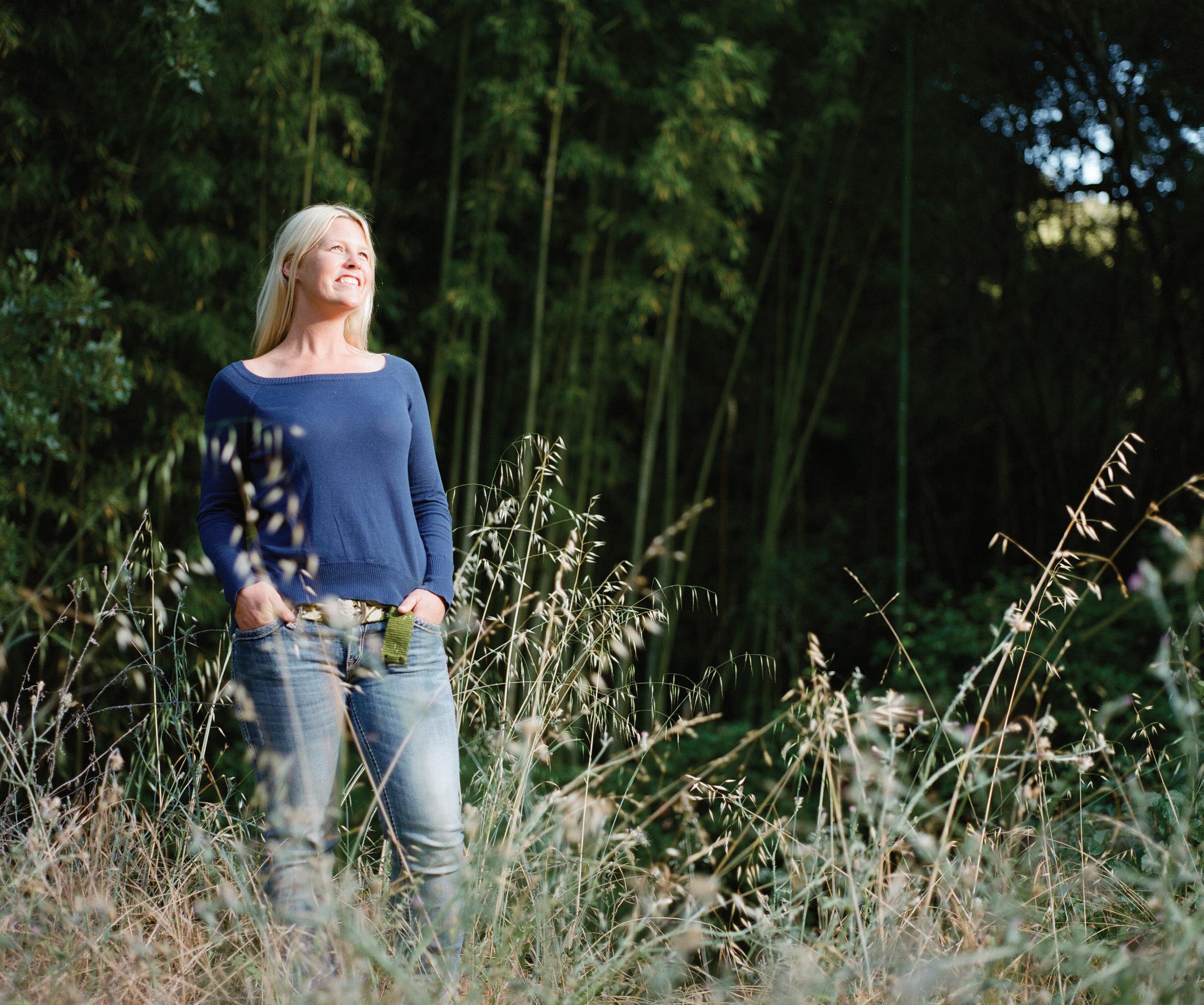
11 minute read
MEET YOUR NEIGHBOR
California Girl
PHOTOGRAPHY BY CHRIS BERSBACH
Inspiration struck STEPHANIE BURCHIEL a short time after selling her popular Morro Bay café and taking a 9-to-5 job: “Why am I not doing what I love?” she asked herself. Her dual passions for soup and local farmers’ markets—she was once known as “The Kiwi Girl” while manning her parents’ produce booth during her childhood—have since been documented in a book called Central Coast Farmers’ Market Soups. A lifelong local, Burchiel now lives in Cayucos and divides her time between the kitchen and farmers’ markets where she makes a living selling her vegan soups. Here is her story…

Where are you from originally, Stephanie?
I was actually born in Southern California, and lived there for, I believe, six months of my life. My dad was a cabinetmaker and he used to do some work here. He fell in love with the area and my parents jumped on the opportunity to move when they had the chance. That was in 1982, and then they bought the cattle ranch in probably 1990 or so. Los Osos is where I grew up, and the Central Coast is all I really knew. I went to Morro Bay High School and Cal Poly.
How did you get into the food business?
Five days before I graduated from Cal Poly with a psychology degree I bought—very inexpensively from a friend—the Shine Café, which is a little vegan restaurant in Morro Bay. I actually went in on it with my roommate. We talked each other into it. I had never cooked before; it was just super impulsive. After a couple of weeks he realized that it was actually a horrible idea so I bought out his portion; again, we’re talking a very small investment here. I had a knack for it and, for whatever reason, I was able to attract a different crowd than the previous owners—a whole new crowd who could really eat there consistently and would come out consistently to support it. And so it grew really, really fast and I really wasn’t prepared for that. I remember some days just hiding behind the counter, taking a few breaths to get through the day.
So, what did you do?
You’ve got to persevere, right? I’m just so thankful for every little learning experience that place gave me because it taught me discipline and it taught me just how to learn really, really quickly. You know, it was like a do-or-die kind of situation. And I loved it so much that I didn’t really care about the stress level. I did that for five years and it was non-stop. Any restaurant owner will tell you that you are married to it. It was a 70 to 100 hour workweek, every single week.
Did you have any preparation for this?
I used to work at the Morro Bay movie theater. Making popcorn had been my only culinary training prior to buying the café. I always really respected the woman who owned the theater, and she gave me some great advice when I needed it most. I told her that I wanted to move the café into a larger space in a better, more prominent location. A few times I actually went forward with the plan, started to sign up for a business loan, scouted out commercial spaces and she always said, “You know, Steph, if you do this, you’re going to work twice as hard and make half the money.” That really resonated with me, and I think about that a lot now. It’s hard to not to let your ego get ahead of you and want the big, fancy restaurant. Because you know that you could probably go in that direction if you wanted. But it’s really taken some selfrestraint to stay small, and keep it realistic for the lifestyle that I want. But I think in the long run, health-wise you’re going to be happier and also lifestyle-wise and family-wise you’re going to be better off. It’s good to really give your attention and your time to what’s important.
At one point, you sold the restaurant and took a job. Tell us about that.
I did. I thought I would go plug myself into the system. Get a state job, get the benefits and a retirement plan and live the dream. That worked for about an hour. [laughter] I hated it. Just really didn’t like the structure. I was bored the whole time. So my boyfriend and I started to think, “You know, maybe we’ll start a business.” We settled on pickles and we planted all of these pickle cucumbers thinking, “Okay, we’re going to be pickle makers and this is going to be our huge successful endeavor.” So, we grew all the cucumbers and got ready, but we didn’t know how to make pickles and weren’t at all set up for it and so, that kind of just like went “Poof!” and blew out. Very soon after that I had the idea of making soup. I just love making soup—it’s what cooking is. I like the idea of being at the farmers’ market so I could sell it there. The first market I did was on a Monday at Baywood Park, and the
soup sold out. So I knew I was maybe onto something, and then we kind of started increasing and increasing, and increasing. And now, it’s just full-blown—it’s supporting me and it’s pretty cool that it took off like that.
But it couldn’t have all been smooth sailing though, right?
When I was first getting started, before I had my truck, I was transporting the soup to market in my Honda Civic Hatchback. I literally had to press myself against the side of the car to put everything in it. I drove all scrunched up and I had all of my holding containers in the back. So, this one day I was driving along South Bay Boulevard to the Baywood Farmers’ Market, and the woman in front of me slammed on her brakes and I heard my soup slosh forward and the lids came off and it literally filled the entire car with soup. It was comical just how much soup was in my car—it was a mung bean soup. I mean, it never recovered; the smell never left. I had to sell the car, and for way less than it was worth. It really needed to be completely reupholstered. I remember pulling off onto the side of the road and just shoveling it out of the car with whatever ladle I could find, into the bushes. I thought it was funny. No reason to cry over spilled soup.
Why vegan?
You know, ironically, I grew up on a beef ranch. This was before my parents bought their organic farm, where they grow lemons and kiwis. We always had so much meat around and it just never really appealed to me. It wasn’t that I was necessarily labeled as a vegetarian; it was just not my preference, I suppose. So now I only eat meat myself on occasion. I usually stay away from red meat and pork and want to know where it’s sourced, where it came from. It’s so cool that there is a food obsession here on the Central Coast. People are really into local products. I see so many of our local restaurants out at the farmers’ markets shopping for produce. It’s great to see that happening and it’s great to see that people are attracted to supporting our local farmers. It’s going to make farming here sustainable.
What goes through your mind when you’re making soup?
I guess just, I don’t know. The love for what I do. Being in the kitchen, it’s an incredible experience to be alone working in the kitchen. I’m there with my headphones on, listening to music, and being able to produce this amazing food with these incredible ingredients. And then switching gears halfway through the day and being you know, in my element around all these people who I tremendously respect, just selling them soup. I guess my customers drive me, they actually feed whatever, I don’t know, desire I have to produce the stuff. I don’t really have very many bad days at the market.
Now, your dad played a role in your developing your soups, right?
Yes, that’s right. He was diagnosed with ulcerative colitis, which is an inflammatory disease and seems to be becoming more and more common. And he was introduced to a dietician when I had my cafe, who put him on this very strict diet of no wheat, no diary, no anything. No salt, no soy, no pork, no—the list was so long on what he couldn’t have, but within about six months, he had really turned it around, and now it’s under control. And he’s very, very aware of what he eats. He can get away with a little bit more now. But I watched firsthand how food change his life. He went from eating a lot of sugar and a lot of processed foods and all the fast food to eating whole foods and clean food and he really cleaned up his diet. Consequently, the whole family jumped on board; my mom is an amazing glutenfree baker. I tell her she should sell her baked goods, but she says, “Nah, I just cook for your dad.”
Whoa—timeout, quick break—why’s your dog growling at me?
[laughter] He’s a Jack Russell, Chihuahua, Poodle. He’s like all three kinds of angry mixed up in one dog. He’s a funny looking dude, isn’t he? Yeah, that’s Scooter. He was a package deal with the boyfriend. It was like an all-inclusive thing, and Scooter hated me for the first six months of our relationship; but now I think he likes me more.
Tell us about your book, Central Coast Farmers’ Market Soups.
So that came out, let’s see, about a year-and-a-half ago. A friend of mine is a photographer, Sam Peck. He used to be a travel photographer for Thai Airways—I just love his work. He’s such a purist and an old-school photographer, he never really doctors anything up; he’s more the type that will get up at five in the morning to get the perfect lighting. That effort really comes through in the book because I think the recipes—maybe I’m too >>
What sunshine is to flowers, smiles are to humanity.
Joseph Addison

CALL US AT 805 541 5800 to schedule an Appointment
NEW PATIENTS WELCOME!
Family, Cosmetic & Implant Dentistry
567 Marsh Street · Downtown SLO ryanrossdds.com

close to the project—but I think they’re kind of secondary to the photography. He did such a phenomenal job and it has sold like gangbusters. We’ve been very fortunate. I was surprised because it was kind of a shot in the dark to write a cookbook. You know, as with everything I seem to do, it was very impulsive. [laughter] And it just kind of, it just started evolving. I wantedto make it all cutesy, but he had a real vision for the project. He broke it up by season, which really made sense, made it flow and then I was able to write the book as I was cooking the soups throughout the different seasons. In the end it just made sense.
How’s life in Cayucos?
I’ve lived in Los Osos, Morro Bay and here, and Cayucos is, by far, my favorite town. But it does turn into a totally different scene during the summer. It really does. Around the Fourth of July, it’s like a madhouse. I used to have to leave town, but now I just embrace the Fourth. I’ve stopped having a bad attitude about it. You know, now I just enjoy the fact that there are all these people having a great time in my little town. And then I go pick up trash the next day.
What do you like to do for fun?
When I’m not in the kitchen I love taking long walks on the beach with Scooter. I also surf—as I get older, I think I’m heading more toward the long board scene. I seem to gravitate toward the little, small, glassy days in Cayucos, like right about now. Summertime is starting to become my favorite. My boyfriend, he’s a surfer professionally and so he makes me look bad in the water. [laughter] But he’s still a good teacher. And I just got my motorcycle license. So I do that a lot. I ride what is called an enduro or dual sport and it can go on or off-road. I pretty much stay off the freeway and away from cars as much as possible. There are some great rides around the coast, especially some of the backroads off of 46. It’s just a beautiful area to go exploring.
What does the future hold?
The future? I don’t know? I don’t do well with change. I’m really hoping that I can kind of keep the status quo. That would be the ideal, you know. Keep cooking; keep living here. Maybe buy a house one day. I want to help my parents out as much as possible as they get older on the ranch to really make sure that they can hold on to that property. It’s a real special chunk of land. It’s nice to have Tuesdays off so that I can go and help them out. But doing this interview was a great excuse to not have to shovel dirt on the ranch today! [laughter] Seriously though, my dad asks me that question all the time, “What are you going to do in 10 years?” I always tell him, “Hopefully this— and, in 20 years, hopefully this.” SLO LIFE










